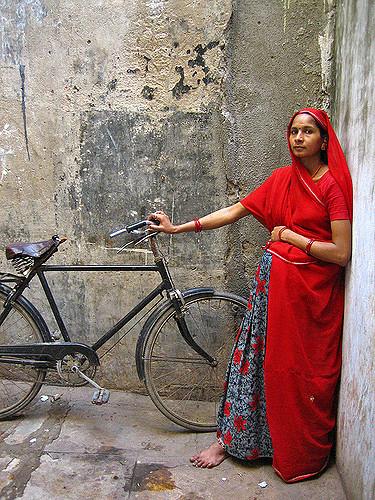The evils of outsourcing surrogacy

A surrogate mother stands outside of a surrogacy clinic in New Delhi. She is one of tens of thousands of Indian women who opt to be surrogate mothers for foreign couples every year.
December 19, 2016
In the United States, the cost of surrogacy for hopeful parents can be upwards of $100,000. For this reason, many infertile or same-sex couples are desperate to find a more affordable option for starting a family. Outsourcing surrogacy to India has been a growing trend in the past decade. Instead of paying $100,000 for a baby, couples can pay less than half of this amount if they choose to use an Indian surrogacy clinic to fulfill their needs.
Surrogacy has become commercialized in India, meaning that many clinics are competing to offer hopeful parents the lowest prices for surrogacy. However, a major problem with this commercialization is that the surrogacy business is largely unregulated in India. This means that clinics are using unethical practices in an attempt to offer foreign parents the lowest surrogacy prices. To do this, they target poor Indian women living in slums to recruit as surrogate mothers. These women are offered amounts of money that they would otherwise never have the opportunity to earn. However, many Indian surrogate mothers do not receive the amount of compensation they were originally promised. Most of these women cannot read or write, so the surrogacy contracts are read to them, and the women are not given copies of the contracts. These practices allow for the women to be taken advantage of, and the women have no means to claim the originally promised monies.
Also, in order to ensure a quick and successful surrogacy, many clinics implant multiple embryos into surrogate mothers in the hopes that at least one will take. If multiple embryos successfully take, the doctors must either abort unwanted fetuses or have extra babies that will not go home with their biological parents. Often times, these extra babies are illegally sold to couples looking for a quicker and even cheaper option than surrogacy. Experts say this is human trafficking. Regarding this lucrative but dark business, junior Sammy Storey said, “I believe that giving women an opportunity to earn money is a great idea, but taking advantage of them is morally and ethically wrong. Having a child is something that should be a wonderful experience that is done for the right reasons, not as a commercialized business.”
The Indian Government is working to regulate this 500 million dollar industry. The government has drafted a law that will ban commercialized surrogacy to foreigners who do not have an Indian passport, as well as gay Indian couples or single parents in India. Under the proposed law, only Indian couples who have been married for at least 5 years would be eligible to seek surrogacy, and only from a close relative. Many believe that this law would only lead to a large black market for surrogacy and lots of additional illegal and dangerous practices. Others say that this law violates women’s rights, as women are allowed to do as they wish with their bodies. As of right now, there is no regulation on surrogacy in India, and this drafted law could take a long time to implement.






















